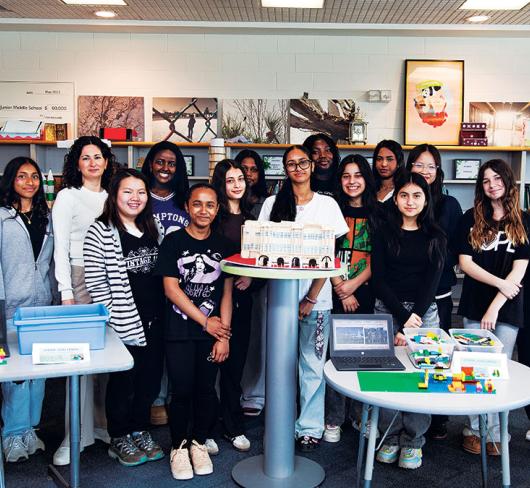
Professional Learning Communities Sharing Knowledge and Leadership: PD on the Fly
PD on the Fly is a great way for teachers to grow professionally, easily and on their own time. So often teachers get that “late for school” feeling as they rush to join after-school professional development sessions already in progress. PD on the Fly gets rid of all that.
PD on the Fly is designed to provide quick, meaningful professional development for members unable to physically attend workshops due to family responsibilities, second jobs, or other commitments. It is a new initiative of the Greater Essex Occasional Teachers’ Local professional development committee and just one of a number of professional learning activities the local has sponsored.
“Just because our members can’t attend workshops doesn’t mean they’re not interested in professional dialogue,” says Cynthia Graydon, PD on the Fly moderator. “This allows them to have meaningful experiences at home on their own time.”
The concept is simple. The local accesses the elementary occasional teachers’ electronic conference through the board’s website, where registered members can post and read messages that pertain only to occasional teachers. PD on the Fly was introduced to the conference last November. New sessions are posted twice a month.
Each session raises one current issue in education, suggests one book for further reading, and gives one website worth investigating. Topics have included How Can I Make Them Listen? What Makes a Good Teacher Great? What Is Equity Anyway? What Is Character Education? and Your Collective Agreement, Did You Read It?
“It’s a means of self-discovery,” Graydon says. “People can take it as far as they want. Some might go out and buy the [recommended] book, others just move on to the next message.” She believes self-directed learning is more meaningful: “It’s easier to understand and retain knowledge that means something personally.”
Recognizing that teachers’ time is too valuable to waste, the online sessions offer an alternative to teachers frustrated with the limitations of board-directed group professional development. Online sessions explore trends such as character education and look at why the board adopts related policies.
Participation is has grown from about 30 participants in the first session to more than 100 in the last session. That’s as good as or better than attendance at any workshops offered for occasional teachers this year.
Participation in the conference occurs before, during, and after school hours, unlike regular PD sessions, which were largely restricted to evenings after school. With the growing popularity of the online sessions, the local is exploring the idea of creating a blog to accommodate professional discussions.
The local executive believes that our project will have achieved its purpose if people read it and become more aware of issues, or if it helps them become more effective teachers.

